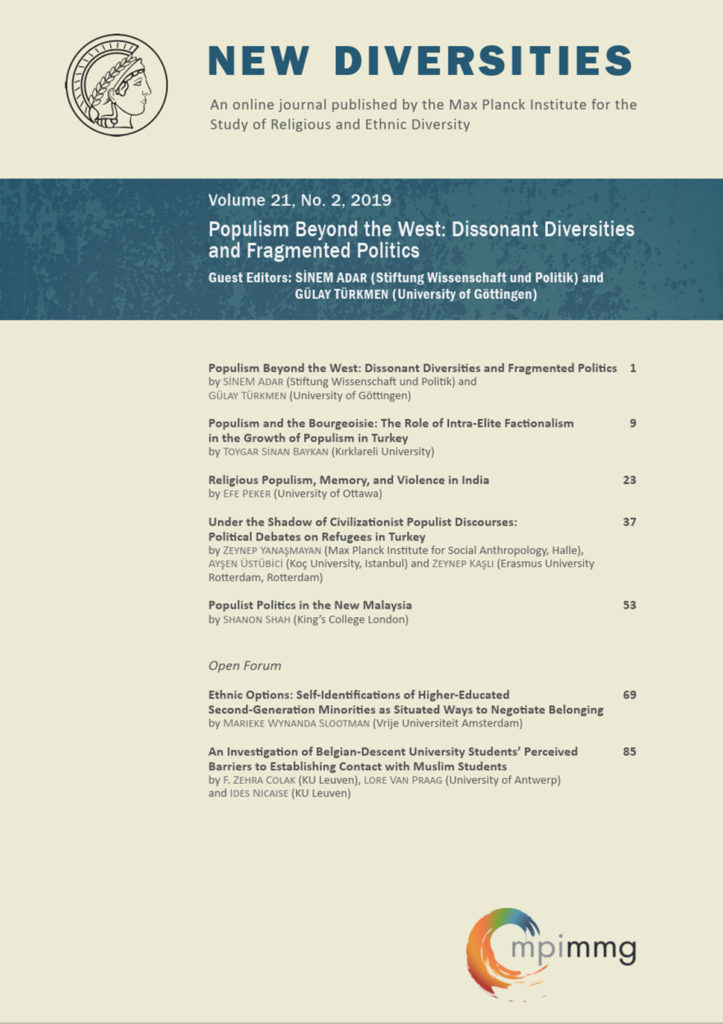Populist Politics in the New Malaysia
by Shanon Shah (King’s College London)
To cite this article: Shah, S. (2019). Populist Politics in the New Malaysia. New Diversities, 21(2), 53–67. https://doi.org/10.58002/vk9f-g124
This article investigates the role of religion in populist politics by focusing on the nascent democratic transition in Malaysia, where a decades-old authoritarian regime was unseated in the 2018 general election. I propose that this result can partly be explained by analysing the moral and populist battle between political rivals, given the dominance of ethno-religious identity politics amid Malaysia’s diverse population. I argue that the nationalist claims of the incumbent regime were overcome by more inclusive claims based on economic justice employed by its political opponents. To illustrate the workings of these competing moral claims, the article briefly examines the debates on lesbian, gay, bisexual and transgender (LGBT+) rights during this political transition. I suggest that public attitudes towards LGBT+ rights provide one clear example of the larger moral and populist contest that forms part of the confrontation between the erstwhile ethno-religious nationalist regime and the new government. This perspective contributes vital insights on the role of religion and morality in populist politics, especially in authoritarian or newly democratising contexts which are also highly diverse. The article is primarily based on public statements made by Malaysian politicians before and during the election campaign.
New Diversities • Volume 21, No. 2, 2019
Populism Beyond the West: Dissonant Diversities and Fragmented Politics
Guest Editors: Sinem Adar (Stiftung Wissenschaft und Politik) and
GülAy Türkmen (University of Göttingen)
- ISSN-Print 2199-8108
- ISSN-Internet 2199-8116
